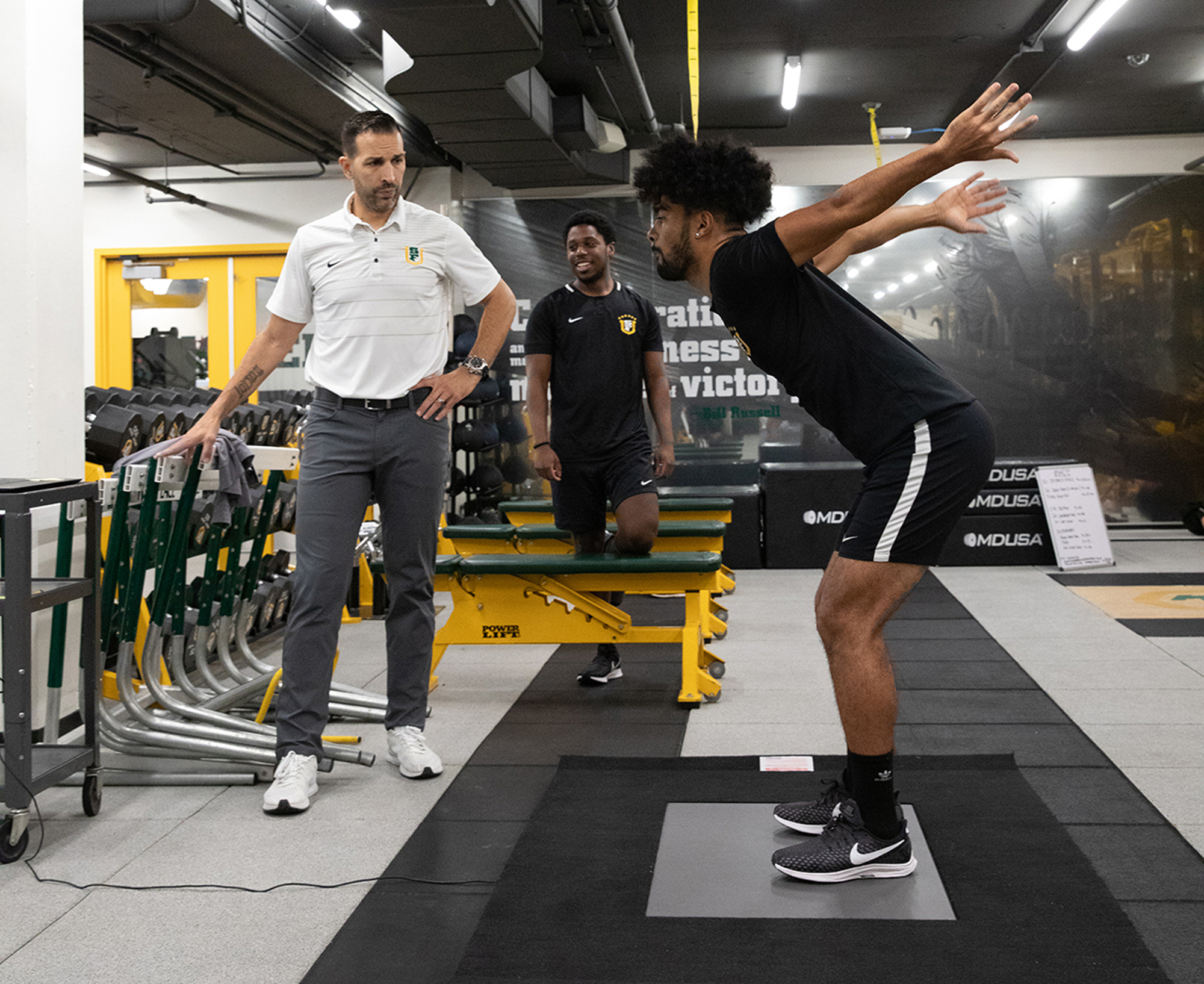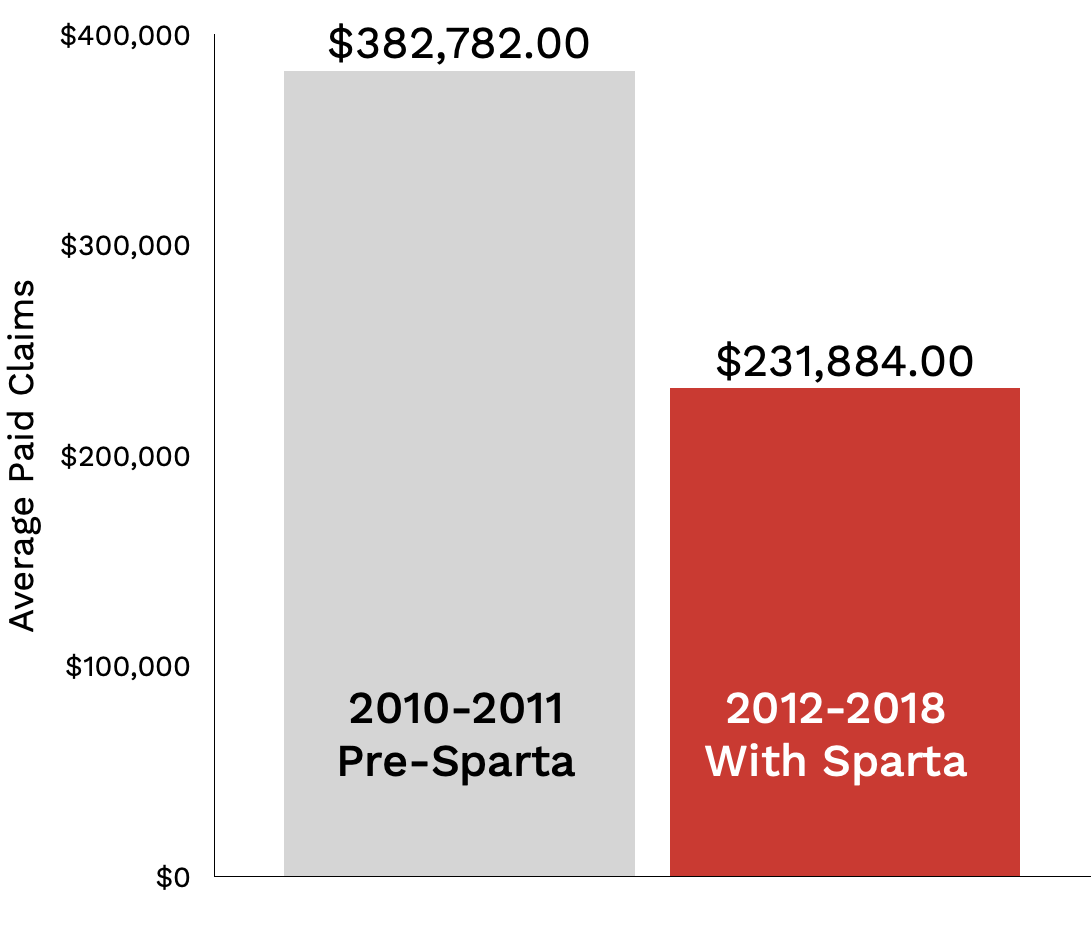Introduction
In 2012, the University of San Francisco Athletics Department was looking to expand beyond typical electronic medical records to provide student-athletes, coaches, performance staff, and medical staff a singular place to track, share, and view critical information. USF saw an opportunity to expand as new technologies were being introduced at the time. In order to do that the medical staff had to start with an overall movement assessment to evaluate and make decisions off for the health of the student-athletes. The staff introduced the Functional Movement Screen (FMS) to assess athletes but shortly after realized the amount of time, manpower, and actionless data was not leading in the right direction. Just three months later USF and Sparta Science began their partnership, to allow the USF athletic department to utilize an objective scalable assessment and create direct lines of communication internally between coaches, players, performance, and medical staff.
When the University of San Francisco restructured its Athletic Performance (AP) department they needed a way to connect all the coaches and athletes with the Athletic Performance staff including Sports Medicine, Strength and Conditioning, Mental Performance, and Sports Nutrition. As a mid-major university in the competitive Bay Area, they also needed a clear advantage in the recruiting process.
Challenge
At a mid-major university, connect coaches, Sports Medicine, and Administration in a clear tangible way to enhance organizational communication and prioritize Student-Athlete health and safety.
Solution
Overall Implementation - With the goal of creating a unifying philosophy and communication system, the Sparta Platform was installed in February 2012. USF uses the suite of Sparta Scans to evaluate student-athlete movement patterns, identify injury risk, and create individualized athletic performance programs. All 220 student-athletes are scanned during Pre-Participation Physical Exam and throughout the year as determined by sport.
The data is shared among the entire Athletic Performance staff (Sports Medicine, Strength and Conditioning, Mental Performance, and Sports Nutrition), the student-athlete, and each sport’s coaching staff. This data is used as the foundation for meaningful conversations with student-athletes and assists the AP Team and sport coaches in determining global training and individualized development plans for each team member.

Assessment Strategy
Pre-Participation Physical Exam - Prior to participation any/all athletes are assessed upon intake.
Off-season - Assess all athletes once a month, with focus on chronic adaptation. Programming adjusted based on jump scan results every four weeks.
In-season - Assessed weekly, focused on load management, and monitoring fatigue. Most teams competed Thursday through the weekend, Monday became scan day as the teams had a down day from practice and competition.
Intervention Strategy - Utilizing the resources and analysis developed by Sparta, the USF Strength & Conditioning coaches created general templates for all athletes based on their need or emphasis: Load, Explode, or Drive. These included a four-day split in the offseason (total body, upper, lower, max effort) and three-day split for in-season (two training days with one recovery session).
Education Strategy - Sparta typically provides onsite in-person training as a standard. Additionally, conference calls and staff in-services with performance, medical and sports coaches were utilized to educate and drive support. The proximity of USF to Sparta Science headquarters also allowed the staff to routinely visit for continuing education, provide feedback from athletes and coaches, and discuss best practices given the environment.
Reporting Strategy - Within the Athletic Department, the Leadership Team was created to meet weekly and review data to ensure collaboration and a holistic approach.
Leadership Team: ATs, S&C Coaches, Sports Dietitian, Sports Psychologist
Weekly Meeting Agenda:
- Review currently injured athletes and progress (Red, Orange, Yellow)
- General nutrition & individual athlete interventions
- ID and discuss high-risk athletes (Sparta Scans)
- Review In-season scans
- Recovery tactics & strategies
“What we utilize it for at USF is collaboration between our strength coaches and athletic trainers to speak a common language”
— Stephanie Ludwig - Assistant Athletic Director, Sports Medicine
In addition to weekly discussions of the Leadership Team, biannual usage reports are provided by Sparta Science as a standard. These reports help to hold staff accountable to make sure data is being collected on all athletes consistently.
Benefit
The partnership between USF and Sparta has allowed for consistency and alignment across the athletic department and within the Athletic Performance staff. The combination of objective movement assessment, systematic intervention, and consistent reporting has allowed for a collaborative and holistic approach to become the standard of care for student-athletes at USF. As a bonus, the software has also helped USF performance coaches transition from relying on Microsoft® Excel to a completely paperless system to write programs for access by all USF athletes. Sparta provides a tangible way for USF to aid in the holistic development of all of their student-athletes. Since using Sparta USF medical costs have plummeted; as a result, the athletic insurance premium renewal decreased to the tune of 5 figures.
“Our success with each team was dependent on how well we were supported by the head coach… and that was driven by how well the sports coaches understood the “why” of athletic performance and Sparta… not necessarily how.”
— Justin Leach - Assistant Athletic Director, Athletic Performance 2012-19
Recruiting - Additionally, the partnership between USF & Sparta Science is a focal point for recruits and parents as a unique resource used to identify injury risk, identify performance, and ultimately used to program individualized training to improve health and resilience. The Sparta technology is a differentiator for USF from other schools that do not have such systems in place to prioritize athlete health and safety.

Results
- Cut annual medical expenses by $290K
- MRIs ordered dropped from 102 in 2011 - 38 in 2018
- 59 surgeries in 2011 - only 23 in 2018
- Men’s basketball roster was healthy and available for 185 out of 215 games
